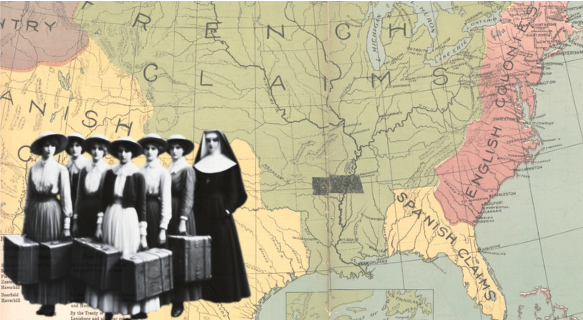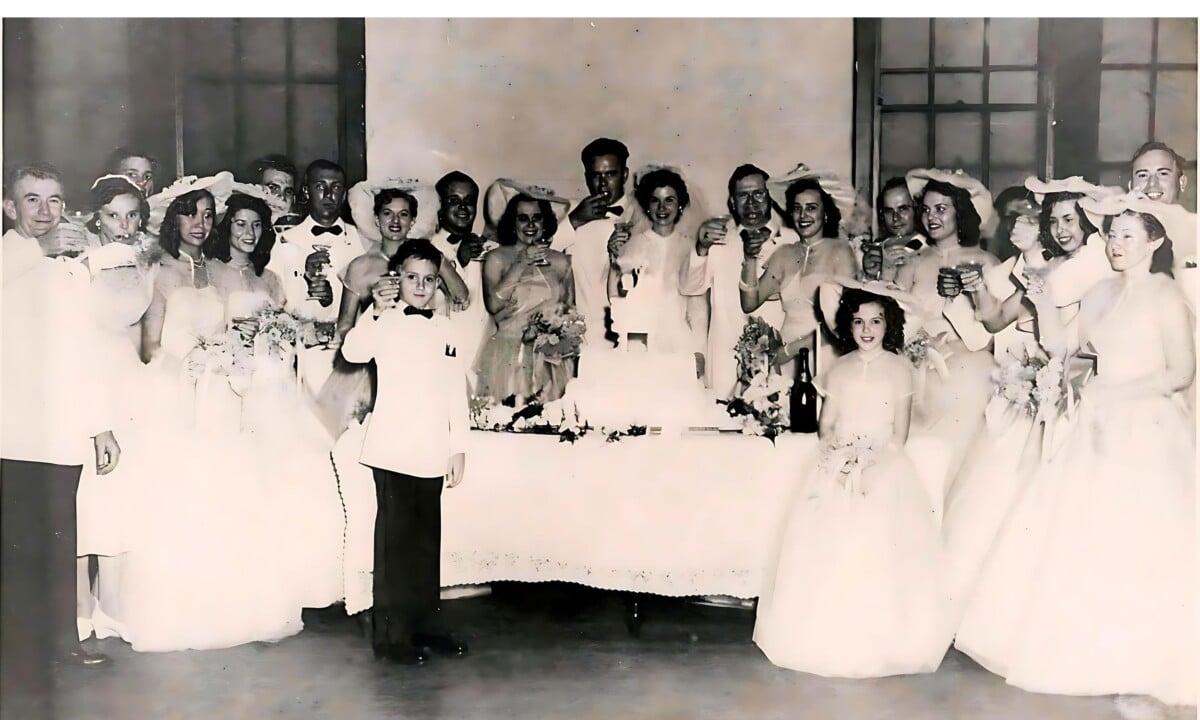
The story of the Pelican Girls is indeed a fascinating piece of early American history, particularly in the context of French colonization in the Gulf Coast region.
In 1704, Fort Louis at Twenty-Seven Mile Bluff (near present-day Mobile, Alabama) was indeed inhabited by young French soldiers who were lacking in female companionship.
This situation led to concerns about the soldiers harassing Native American women in the area. Bienville, who was then serving as governor of French Louisiana, recognized the need to address this issue and wrote to the French king, Louis XIV, seeking a solution.
In response to Bienville’s plea, the French authorities decided to send young women to the colony to marry the soldiers and establish families.
These young women, mostly orphaned or from poor backgrounds, were willing to embark on the journey to the New World in search of a better life. They were known as the Pelican Girls, named after the ship that carried them across the Atlantic.
Upon their arrival on Massacre Island (later renamed Dauphin Island), the Pelican Girls were quickly married off to the soldiers, many within just a few months. They brought with them small chests or caskets containing their few possessions, hence the term “casket girls.” These possessions were likely basic necessities and personal items needed for their new lives in the colony.
Etienne Burel’s journey from Paris to the New World and his subsequent establishment in French Louisiana is indeed a fascinating tale of early colonial life.
Born in 1656 in St. Severin, Paris, Etienne Burel pursued a career as a pastry cook in his hometown. However, seeking new opportunities, he emigrated to Cap St. Ignace in Canada, where he married Marguerite Roussel in 1682.
After some time in Canada, Etienne Burel returned to Paris with his family around the turn of the century. However, upon learning of St. Vallier’s search for colonists to settle in Louisiana, he saw an opportunity for a fresh start and free passage to the New World.
Etienne, along with his wife Marguerite Roussel and their children of which we are descendants of Genevieve, embarked on the journey aboard the French ship Pelican. They arrived in the New World as part of the first wave of European settlers of French Louisiana, anchoring off Isle de la Massacre (now Dauphin Island) on 24 July 1704.
Settling in Old Mobile, Etienne Burel wasted no time in establishing himself. He is noted for opening what is believed to be one of the first taverns in the burgeoning town. In this tavern, he offered a variety of beverages such as wine and brandy, as well as pastries, likely drawing on his expertise as a pastry cook.
Genevieve Burel – a Pelican Girl marries Claude Trepagnier
Etienne’s daughter Genevieve Burel’s marriage to Claude Trepagnier further solidified their presence in the colony. The Genevieve and Claude Trepagnier had two daughters, Marguerite Carrière (Trepagnier) and Barbe Ursule Dubuisson (Trepagnier) named after her grandmother.
Notably, Marguerite married Joseph Carriere, (who was related to the Cousin family and Father Rouquette’s people) indicating the intertwining of familial connections within the early French Louisiana community.

Marie Mahou – a Mutinous Woman marries Laurent Laurent
Etienne, Genevieve and Marie Mahou’s stories exemplifies the courage and determination of early colonial settlers, who braved the uncertainties of the New World in search of new opportunities and a better life for themselves and their families.



